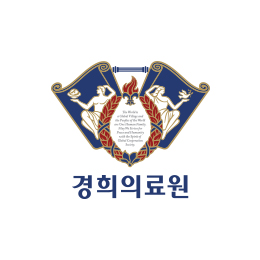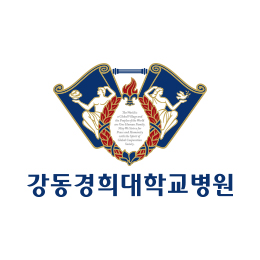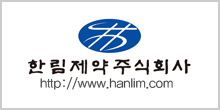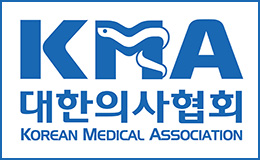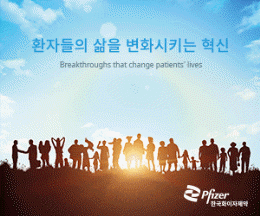보건복지부(장관 박능후)는 지난 9.7(목) ‘건강한 아세안을 위한 협력 (Together Toward a Healthy ASEAN)’이라는 주제로 브루나이에서 개최된 제7차 아세안+3 보건장관회의에 참석하여 국가 간 보건의료 협력 강화 방안을 논의하였으며, 우리나라 수석 대표로 권덕철 차관이 참석하였다.
’04년 이래 2〜3년 주기로 개최하는 아세안+3 보건장관회의는 아세안 10개국과 한국, 중국, 일본이 참석하는 지역협의체로 아세안 지역의 보건의료 협력 강화 방안을 논의해 오고 있다.
인도네시아, 필리핀, 싱가포르, 미얀마, 라오스, 말레이시아, 베트남, 태국, 브루나이, 캄보디아 한국은 ’14.9월〜’17.9월 간 베트남과 제6차 아세안+3 보건장관회의 공동의장국으로서 라오스, 미얀마, 캄보디아, 베트남 등 아세안 국가의 일차의료 및 보편적 의료보장 강화를 위하여 협력하였다.
또한, ’15년 메르스(MERS, 중동호흡기 증후군) 발병 이후, 아세안+3 특별 보건장관회의 비디오 컨퍼런스(’15.7월) 및 글로벌보건안보구상(이하 GHSA) 장관급 국제회의(’15.9월)를 국내에서 개최하고, 올해에는 GHSA 선도그룹 의장국 역할을 수행하여 아세안 지역을 포함한 전세계적 감염병 예방 및 대응을 위하여 적극적으로 노력하고 있다.
권 차관은 이번 회의에서 생애주기 건강증진 정책의 일환으로 한국의 만성질환 관리방안을 소개하였으며, 특히 연령·성별 특성을 반영한 국가 건강검진 체계를 공유하여 높은 지지를 받았다. 아세안 국가들은 한국의 높은 건강검진 수검률 및 검진 후 사후지원 제도에 대해 큰 관심을 보였으며, 한국의 일차의료 및 건강보험체계에도 주목하였다.
감염병과 관련하여, 권 차관은 지리적으로 인접한 아세안+3 국가 간 공동대응의 중요성을 역설하는 한편, GHSA와 WHO가 공동으로 수행하고 있는 ‘합동외부평가(JEE)’ 및 한국의 스마트 검역 시스템에 대한 아세안+3국의 관심과 참여를 당부하였다.
또한, 권 차관은 고혈압, 당뇨와 함께 앞으로 질병 부담이 지속적으로 증가할 것으로 예상되는 정신건강 문제에 대해서도 아세안+3 국가가 관심을 가지고 적극 논의해 나갈 것을 제안하였다.
-제7차 아세안+3 보건장관회의 공동선언문 (영문)
JOINT STATEMENT 1. WE, the Ministers of Health of ASEAN Member States (AMS), representing Brunei Darussalam, the Kingdom of Cambodia, the Republic of Indonesia, the Lao People’s Democratic Republic, Malaysia, the Republic of the Union of Myanmar, the Republic of the Philippines, the Republic of Singapore, the Kingdom of Thailand, and the Socialist Republic of Viet Nam and the Ministers of Health of the People’s Republic of China, Japan and the Republic of Korea convened the 7th ASEAN Plus Three Health Ministers Meeting (APTHMM) in September 2017 in Bandar SeriBegawan, Brunei Darussalam. 2. We agree that our health development collaboration shall align to the ASEAN Post-2015 Health Development Agenda with specific focus on collaborative areas that include common issues of concern such as Universal Health Coverage (UHC), ICT for healthcare, non-communicable diseases, traditional and complementary medicine, active ageing, human resource for health, responding to communicable and emerging health threats and food safety as well as issues recently highlighted such as Antimicrobial Resistance, Ending All Forms of Malnutrition and Disaster Health Management. 3. We acknowledge the importance of the role of social, behavioral, and physical contributors to health whereby health is not just limited to a simple biological model of the treatment of illnesses. Improving health therefore requires a continuum of interventions from preconception to ageing, with seamless engagement of multi-sectoral stakeholders focusing on issues that include financial and organisational coordination, supportive national and local policies, and adequate resources so as to achieve the best health outcomes and ensure high quality of life throughout the life course. 4. We agree to strengthen our joint efforts in advocating, facilitating and implementing relevant social and economic interventions in addressing non-communicable diseases and its risk factors including tobacco use, harmful use of alcohol and unhealthy diet, as well as sedentary lifestyle. 5. We commit to the global strategy and action plan on ageing and health 2016-2020 which was adopted at the Sixty-ninth World Health Assembly in May 2016 which calls for commitment to action on healthy ageing in every country and develop multisectoral initiatives that support the development of age-friendly environments; alignment of health systems focusing on primary health care to the needs of older populations; development of sustainable and equitable systems for providing long-term care (home, communities, institutions); and improvement in the measurement, monitoring, and research on healthy ageing. In this regard, we recognize the importance of encouraging community-based integrated care and functional recovery care of elderly people including human resource development. 6. We reaffirm our commitments to the 2030 Agenda for Sustainable Development towards achieving Universal Health Coverage which includes financial risk protection, access to quality essential health-care services and access to safe, effective, quality and affordable essential medicines and vaccines for all. We therefore task the ASEAN Plus Three SOMHD to accelerate the progress towards UHC in all countries by building up the national and regional capacity to assess and manage the equitable, efficient, resilient and sustainable health systems to support UHC, jointly with development partners including the activities under the ASEAN plus three UHC Network, and any other relevant initiatives including high-level advocacy where appropriate. We commit to collectively advance the issue of UHC to the highest regional and global forum, including the United Nations General Assembly. We also note Japan’s efforts to develop the ASEAN-Japan UHC Initiative. 7. We take note of the existing ASEAN Plus Three health cooperation in the prevention and control of communicable and emerging infectious diseases and commit to further strengthen the cooperation towards reducing the impact of these diseases; as well as improving our emergency preparedness and risk reduction against infectious disease outbreaks and other health threats, including disasters. 8. We acknowledge the potential health activities to be undertaken under the ASEAN Plus Three and therefore urge ASEAN Plus Three SOMHD to consider initiatives that are identified as regional in nature to be incorporated in the Work Programmes of the ASEAN Health Clusters, in line with ASEAN Cooperation Projects mechanism that has a proposal and approval process facilitated by the ASEAN Secretariat. 9. We recognize and appreciate the contribution by, and further commit to collaborate closely with development partners, including the World Health Organization, the development banks, bilateral development partners, civil society organizations and private sectors respecting the criteria of engagement with ASEAN. We look forward to further exchanges of views and collaboration in health development at our next Meeting in Cambodia in 2019. |
의장국인 브루나이와의 보건협력을 위한 양자 면담도 진행하였다.
브루나이 보건부 장관(Zulkarnain HANAFI)은 권 차관과 양자면담시 한국의 우수한 병원 시스템, 건강검진, 건강증진을 위한 도시환경 조성 및 국민의 높은 보건인식 등에 큰 관심을 표명하였으며, 양국 간 보건의료 분야 전반에 대한 협력을 강화해 나가기로 합의하였다.
이번 아세안+3 회의를 통하여 아세안 10개국과 한ㆍ중ㆍ일 3개국은 만성질환을 포함하여 아세안+3 국가의 건강증진을 위한 협력을 강화해 나가기로 합의하였으며, 이러한 내용을 담은 공동선언문에 합의하였다.
권 차관은 "이번 회의를 통하여 아세안 국가에 대한 한국의 리더십과 높은 위상을 다시 한 번 확인하였으며, 이와 동시에 아세안 국가들이 한국에게 거는 기대가 높다는 것도 재확인할 수 있었다"고 평가하고,"앞으로 보건의료 분야, 특히 한국이 제안한 정신건강 분야에서 이니셔티브를 가지고 아세안 국가들이 우리나라에 거는 기대와 역할에 성실히 부응해 나갈 것"이라고 밝혔다.



